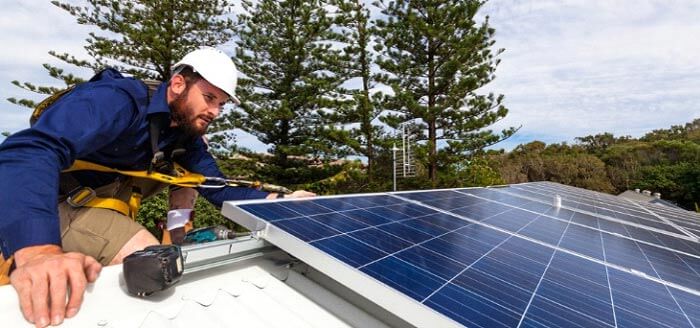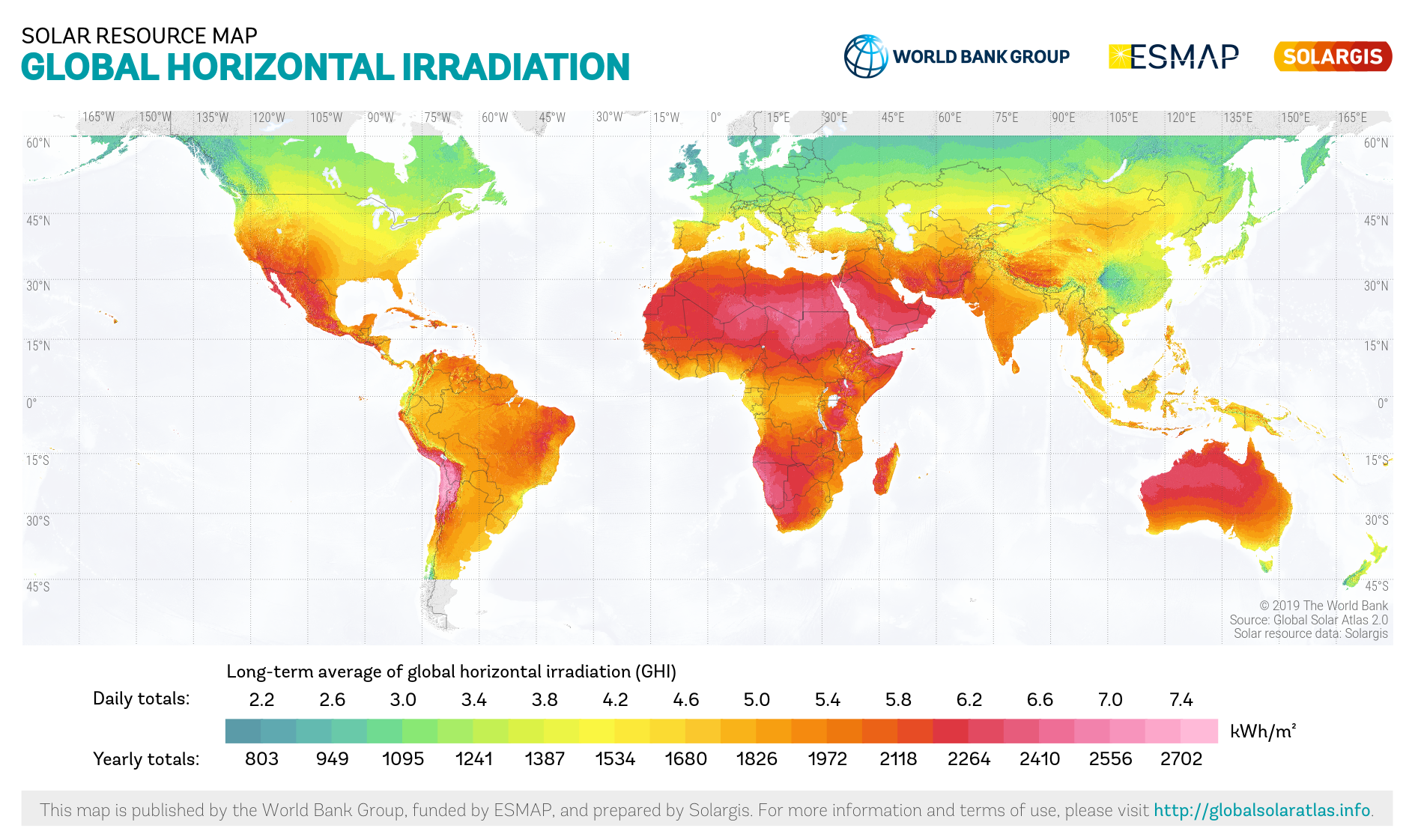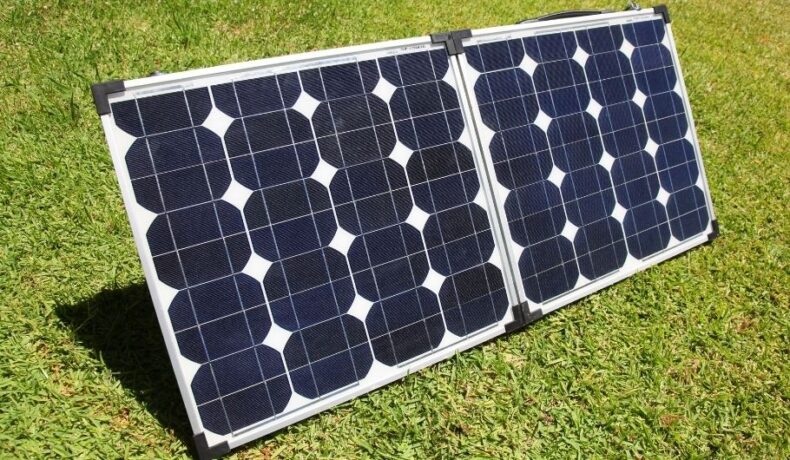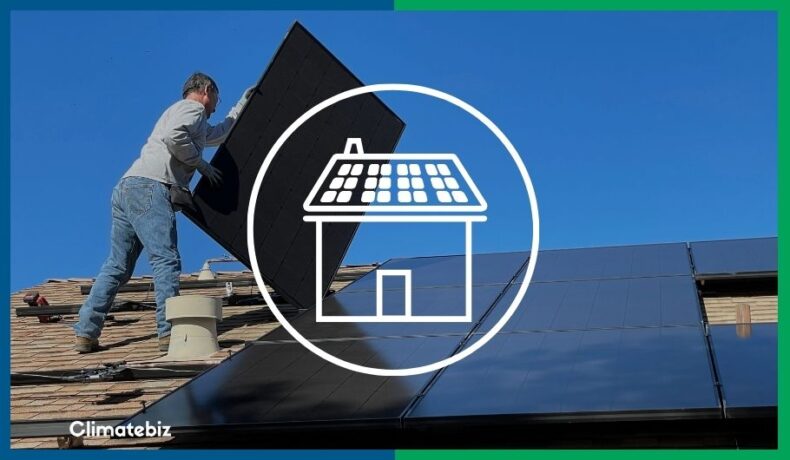“Is it worth investing in a 5kW solar system for my house?”
From rising energy prices to concerns about carbon footprint — there are more than enough reasons for you to consider going the solar route.
But would investing in such a system make much of a difference? How much space will it cover, and more importantly, what system size is appropriate?
This article hones in on system size, particularly on 5kW systems. So, will a 5kW solar system be enough for your household?
A 5kW solar system should be enough for an average U.S. household in Arizona, but what about elsewhere?
Let’s find out!
Table of Contents
What Is A 5kW Solar System?
A 5kW solar system is a solar array that can generate up to 5kW of power for your house at peak production. However, a 5kW system does not always reach its maximum energy-production threshold because solar irradiance is not always at its peak (above 1000 kW/m2) throughout the day.
Knowing your area’s Peak Sun Hours (PSH) will help you here. (We’ll touch on this shortly)
Is A 5kW Solar System Enough To Run A House?

For starters, an average U.S. household utilizes 11,000 kWh. However, your home’s size and location may mean that you don’t fall within that average.
As previously discussed, a 5kW solar panel does not produce 5kW throughout the day; If it did, you’d be using the following equation:
21,900 kWh (5kW x 12hr/day x 365days)
This is not the case since sunlight does not shine with the same intensity throughout the day. The sun is usually at its highest intensity during mid-day; these hours are called Peak Sun Hours (PSH).
Peak Sun Hours (PSH) is the number of hours in which the sun produces an average of 1000W (energy) per square meter (10.5 ft).
Arizona Example
For a house in Arizona, where the PSH is 5.7 h, the required rated annual power output with a 5kW solar system will be 10,400 kWh. Based on these rough estimates, a 5kW solar system will work for the average house in Arizona.
Is A 5kW Solar System Enough To Run Your House?
To answer this question, you’d need to do some basic calculations. Not only does each household have different energy requirements, but they’re also located in different states or regions. Hence, you’d need to consider three crucial factors to determine if a 5kW solar system is enough for your house. These include:
- Your domestic energy needs
- Location of your house
- Solar panel types
Calculating Domestic Energy Needs

Read the monthly usage (kWh) on your power supply company’s bill.
5KW is a measure of your solar system’s rated output. So, you need to know the power requirements for your house to know if this system will suffice.
To begin with, you should look at your energy bills for the past year. Then, look up the energy usage over the entire year in kWh.
Finally, note down the total usage (in kWh) on a piece of paper.
Location Of Your House

Solar resource map by World Bank- Global Horizontal Irradiance (GHI)
Now, location is one of the most important aspects of a solar system because different areas receive differing amounts and intensities of sunlight.
You must determine your area’s Peak Sun Hours (PSH) and write this value down. Those of you living in the U.S can view your PSH here.
Solar Panel Type
The third factor is solar panel type, i.e., power rating and material.
First up is material. Will your panels be polycrystalline, monocrystalline, or thin-film? Of these, monocrystalline is the most efficient, ranging from 18 to 24%.
Next, we have power ratings, which also affect panel size. Generally, solar panels come in various sizes, including 50W, 100W, 200W, 400W, 500W, and 600W.
Now that you have the key data, you can calculate the electricity production and space requirements for your home’s 5kW solar system.
How Much Electricity Will A 5kW Solar System Produce For Your House?
Time to use the Peak Sun Hour method. For this, you need to plug in the peak solar hour (PSH) values you noted earlier. The equation for the method is given below:
Estimated Annual Energy (in kWh) = Rated System Power Output (in kW) x (PSH hours x 365 days)
To help you understand this process, we’ll be carrying out calculations for three states in the U.S. The peak solar hours (PSH) values are given below:
- Arizona = 5.7 h
- New York = 3.8 h
- Alaska = 2.5 h
So, the estimated annual energy outputs for a 5kW solar system in states will be the following:
- Arizona = 10,403 kWh
- New York = 6,935 kWh
- Alaska = 4,563 kWh
You’re Up!
Perform the same calculation relative to your location and match it against your annual energy consumption (kWh). If the answer exceeds your energy needs, you can rely on a 5kW solar system for your house. In this case, though, you might need a solar energy storage system or opt for net metering.
In fact, you can read up on whether you would require a 3 kWh battery or a 5 kWh battery.
How Many Panels Make Up A 5 kW Solar System?
Presently, many vendors are selling solar panels in the U.S.
As we discussed earlier, solar panels come in different sizes, but 400-watt panels are the most popular in North America for residential use.
In choosing panels for roofs, panel weight is also a concern, so you might want to consult a specialist. A specialist might also help you establish the perfect tilt angle to maximize your panel’s sunlight utility.

A rough estimate would be 10 to 25 panels for general house needs, but there is a way for you to know precisely how many solar panels you’ll need
The method is simple, a 5kW system is essentially a 5,000 watts system, so if you have a 500-watt panel, you’ll need 10 panels (5,000/500 = 10).
The formula is provided below:-
Number of Panels = 5,000/ (Name Plate Capacity)
The following table provides the number of panels and their capacity:
| Name Plate Rating | No. of Panels |
|---|---|
| 100 watt | 50 |
| 200 watt | 25 |
| 400 watt | 13 |
| 500 watt | 10 |
| 600 watt | 8 |
Since 400-watt panels are commonly used for domestic solar needs, you might need 12 to 13 400-watt monocrystalline solar panels to power your 5 kWh solar system.
With this information, you can look at the costs associated with different products available on the market.
Now, let’s move on to the space requirements for your desired system.
How Much Roof Space Will A 5kW Solar System Use?
Any solar panel enthusiast needs to know if there’s sufficient space for panels on their roof or in their backyard.
The space requirements for a 5kW solar system with different ratings are provided below:
Total Space Required – Size Of Single Plate x No Of Panels Required
| Name Plate Rating | Size of Single Plate | Total Space Required for 5kW System |
|---|---|---|
| 100 watt | 3.9 ft. x 1.7 ft. | 332 ft2 |
| 200 watt | 4.8 ft. x 2.2 ft. | 264 ft2 |
| 400 watt | 6.5 ft. x 3.2 ft. | 271 ft2 |
| 500 watt | 7.5 ft.x 3.7 ft. | 278 ft2 |
| 600 watt | 8 ft. x 3.7 ft. | 237 ft2 |
Although this is the total space required for the panels, they might need more space for safety and maintenance purposes. It’s good practice to leave an additional 20-30% space empty, but it’s up to the user to arrange the panels in any way they deem fit.
People tend to arrange them in rectangular rows on their roofs or back yards, focusing mainly on maximizing the direct sunlight.
Lastly, let’s consider what it would cost to set up a 5kW solar system for your house.
How Much Money Will A 5kW Solar System Cost?
Price is another major factor when it comes to panels. According to the NREL, many factors go into the pricing of a solar system, including:
- Solar Panels: different OEMs have different prices to offer. As such, solar panels can cost anywhere between $2.3 to $2.75per watt.
- Solar Inverter: this could be a battery inverter, an on-grid inverter, or a hybrid inverter.
- Solar Batteries: these are optional, and prices can vary based on your needs.
- Electrical BOS: this would include meter, communication device, subpanels, wiring, etc.
- Installation, licensing, and engineering costs: includes the license fee, the labor fee, and the engineering design fee for your system.
- General overheads: these include all the nitty gritty elements of a project.
According to the NREL, a 5kW solar panel system will cost around $16,500. Subsequently, a grid-tied, 5kW solar system plus a 5kW, 12.5 kWh battery would cost approximately $30,000.
Final Thoughts
We hope the article has been able to answer your questions regarding a 5kW solar system.
If you feel a 5kW solar system does not meet your needs, you can look at our 10kW solar system.
In summary, opting for a 5kW solar system makes sense for many who live in locations that receive high peak sun hours (PSH). Check out our Solar Panel Blueprints resource if you plan to set up your own 5kW solar system!
If you want to share your thoughts or ask us a question, please feel free to reach out to us in the comments section below! Alternatively, visit our forum or follow us on Twitter to share your opinions with us!

